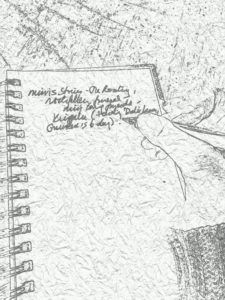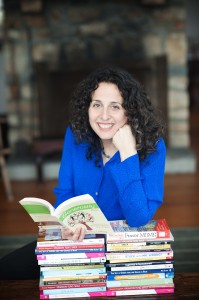 Writing Rules: Do They Trump Your Gut?
Writing Rules: Do They Trump Your Gut?
In a recent book concept consultation, a new client shared her new writing rules: she’d read that all books should have “three acts” no matter whether the book is self-help, memoir or a novel.
She tried to implement the writing rules she’d read about, to fit the structure of her book into three acts. The book just refused to cooperate.
Then she made a list of some of her all-time favorite self-help books. None of them seemed to fit the three act formula.
Still, she doubted herself. So we asked her muse, her inner creative guidance, for clarity, as I led her through a guided visualization.
Her muse was clear. “No more writing rules.”
Yes, there are some excellent guidelines for writing that can help make your writing come to life for readers. Yet, the most important guidance is your inner guidance. Experts don’t know everything. And they don’t know your book.
Only one working structure for any book? Nah. Just a guideline. An option. Not THE LAW.
Writing Rules are Guidelines
Writing Rules should serve a purpose. They should help you write a book that resonates for your readers and makes a positive impact on their lives.
Writing Rules are not immutable laws. There are exceptions to every rule—often many.
 Some of the most successful books break the rules. Who would have thought that a chapter of PowerPoint slides would work in a novel? Yet, A Visit from the Goon Squad won a Pulitzer Prize.
Some of the most successful books break the rules. Who would have thought that a chapter of PowerPoint slides would work in a novel? Yet, A Visit from the Goon Squad won a Pulitzer Prize.
Take risks on the page. Some will work and some will not. A strong editor and honest beta readers will give you the feedback you need.
And ultimately, you’ll need to trust your own inner guidance as well.
Can You Read While Your Write?

I also wondered about all the writing books this author continued to read—and the novels and self-help books, too. Was it working for her? Or could some of the stuckness she mentioned be traced back to “over-reading?”
We asked her muse about that, too.
“You’re not allowed to read any new books—just books you’ve read before—uplifting books only. Books that help you connect.”
Even then, her muse insisted she read those books only at night, well after writing time.
Write. That’s what her muse wanted her to do. Write.
Reading has its place but behind the writing. After the writing. Secondary.
Write. Then read.
Trust your own muse.
Trust your creative source.
Trust yourself.
Reader, what’s your experience? How much reading works for you and when? How about writing rules? Which work for you? Which don’t? How can you tell? Share your comments.
 Writing Rules: Do They Trump Your Gut?
Writing Rules: Do They Trump Your Gut? Some of the most successful books break the rules. Who would have thought that a chapter of PowerPoint slides would work in a novel? Yet, A Visit from the Goon Squad won a Pulitzer Prize.
Some of the most successful books break the rules. Who would have thought that a chapter of PowerPoint slides would work in a novel? Yet, A Visit from the Goon Squad won a Pulitzer Prize.



You can never learn how to write books. You can only learn how to write the book you’re currently writing.
Your client was right to consider how others had written their books, and she was also right to eventually reject that advice and go her own way. Like you said, the experts didn’t know her particular book.
As for reading while writing, I think I’d go nuts if I didn’t, but it has to be something so different from what I’m working on that it can’t (for lack of a better word) pollute my own vision. The best example I have is that when I wrote a novel about Greek gods in modern society, I absolutely was not allowed to read American Gods by Neil Gaiman. That would’ve wrecked me. I read the new Anne Tyler instead. And probably a bunch of nonfiction.